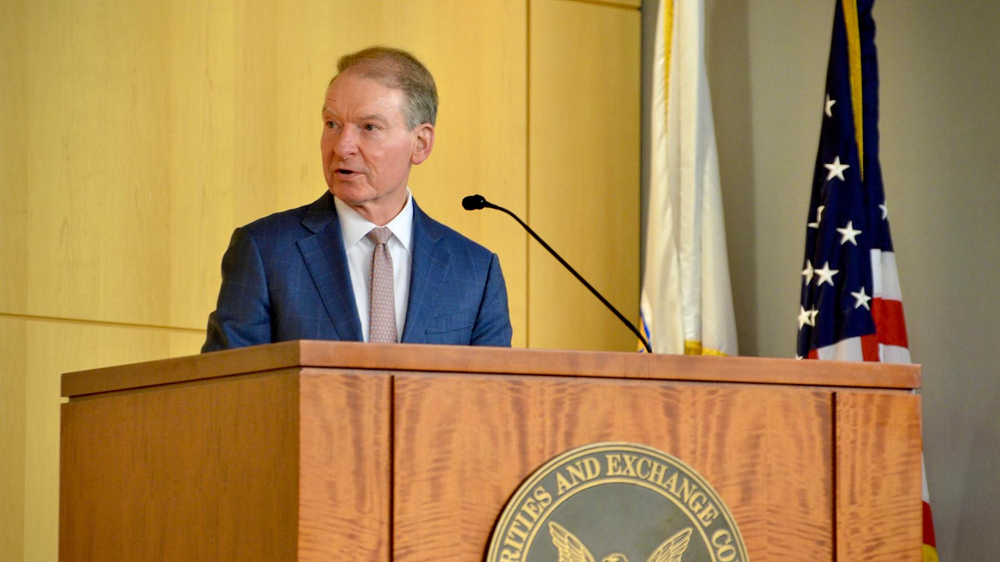The narrative of U.S. cryptocurrency regulation is undergoing a historic transformation.
On June 9, Eastern Time, Paul Atkins, Chairman of the U.S. Securities and Exchange Commission (SEC), delivered a landmark speech at the "DeFi and the American Spirit" roundtable, clearly announcing that the SEC will support DeFi innovation and the right to self-custody in cryptocurrency. He not only criticized the previous administration's hardline approach of "regulation by enforcement" but also promised to bring certainty to the industry through formal rule-making.

Self-Custody: An Undeniable "American Value"
Atkins made it clear that he directly links blockchain technology to the core values of "American economic freedom, property rights, and open innovation." He emphasized that the right to self-custody is a "fundamental American value" and should not be restricted due to assets being on-chain or connected to the internet.
He sharply criticized the previous administration for vaguely classifying decentralized network activities such as mining, validating, and staking as securities through enforcement actions and public statements, arguing that this severely hinders technological innovation. Atkins explicitly committed: "The SEC's path will be through formal rule-making, rather than relying on the uncertain 'regulation by enforcement'; all regulatory actions must be based on clear powers granted by Congress."
Regulatory "Easing": A Tailored "Innovation Exemption" Framework for DeFi
Regarding the core issue of DeFi, Atkins released unprecedented positive signals. He revealed that he has instructed SEC staff to study amendments to existing rules and explore a "conditional exemption framework" or "innovation exemption" mechanism tailored for DeFi.
This framework aims to provide a compliant transition path for DeFi protocols, allowing both registered and unregistered entities to launch on-chain products and services more quickly and flexibly, provided they meet investor protection requirements, thereby significantly lowering compliance barriers. He specifically pointed out that the mandatory introduction of intermediaries would "increase unnecessary transaction costs" and restrict native on-chain activities such as staking, and the SEC will grant market participants greater flexibility in self-custody.
Developers No Longer "Criminals": Justifying Code Freedom
The responsibility of developers has long been a Damocles sword hanging over the crypto world. In this regard, Atkins also provided clear reassurance. He publicly criticized the previous administration's regulatory logic that viewed software engineers developing neutral tools as "unregistered brokers."
He sharply compared this practice to "suing car manufacturers for crimes committed by drivers using self-driving cars," pointing out the absurdity of the logic. Atkins argued that merely publishing software code should not automatically trigger securities law obligations, as the decentralized nature of blockchain applications means they cannot be subjected to traditional issuer-centered market frameworks. This statement undoubtedly provides significant regulatory certainty expectations for all wallet and DeFi protocol developers.

Market Discussion: The Prelude to DeFi Summer 2.0?
KOL @wublockchain12 on platform X pointed out that this marks a formal shift in U.S. cryptocurrency regulation from confrontation to collaboration, and a new era of DeFi development may have begun. Trader @rickawsb optimistically predicted that "DeFi Summer" might re-emerge as a result. The industry generally believes that this policy shift could not only clear obstacles for compliance paths for projects like Solana and XRP but also pave the way for the approval of more types of cryptocurrency ETFs.
This series of statements is not only a positive response to the long-standing calls from the crypto industry but also resonates with the recent political vision of the Trump administration to "make the U.S. a center for crypto innovation." However, Atkins also emphasized that all new regulations must be predicated on "maintaining investor protection and preventing fraud." How the SEC will strike a balance between caution and innovation remains to be seen. The subsequent details of rule amendments and exemption frameworks will be key in determining the next phase of the crypto world, warranting global market attention.
免责声明:本文章仅代表作者个人观点,不代表本平台的立场和观点。本文章仅供信息分享,不构成对任何人的任何投资建议。用户与作者之间的任何争议,与本平台无关。如网页中刊载的文章或图片涉及侵权,请提供相关的权利证明和身份证明发送邮件到support@aicoin.com,本平台相关工作人员将会进行核查。




